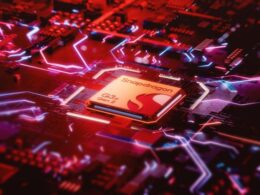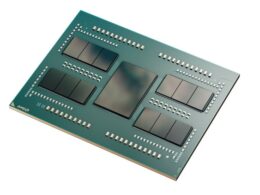AI-driven drug discovery is poised for a breakthrough in 2024, as evidenced by the flurry of announcements at the 42nd annual JP Morgan Healthcare conference. One standout announcement came from Isomorphic Labs, a subsidiary of Alphabet, Google’s parent company. Led by Demis Hassabis, the founder of Google DeepMind, Isomorphic Labs is making significant strides in the field. The London-based company has entered into strategic research collaborations with two industry giants, Elli Lilly and Novartis, to discover small molecule therapeutics for multiple targets. These partnerships have the potential to be worth a combined $3 billion and are a testament to the confidence placed in Isomorphic Labs’ capabilities.
DeepMind, known for its groundbreaking work in mapping protein structures, revolutionized the scientific community with its AlphaFold system. This system accurately predicted the structures of almost all known proteins, paving the way for a deeper understanding of biology and accelerating drug discovery. Building on this success, Isomorphic Labs, launched in 2021 by Demis Hassabis, aims to harness the AlphaFold breakthrough and further advance drug research. Hassabis noted in a December 2022 interview with the Financial Times that Isomorphic Labs was close to securing its first commercial deal, cementing its position as DeepMind’s sister company.
Collaborations and Innovations
Isomorphic Labs is not the only player in the AI drug discovery arena. Utah-based startup Recursion has partnered with Nvidia, a leading technology company, to leverage the power of AI in their research. This collaboration involves a $50 million investment from Nvidia, along with access to BioNeMo, a cloud-based AI tool for drug discovery. Recursion has also unveiled Lowe, a software platform that enables scientists to tap into multiple drug discovery models, solving the challenge of using various tools efficiently. Recursion’s CEO Chris Gibson highlighted the value of the Lowe platform, stating, “The LLM is a vehicle by which we can give our scientists access to them [the tools].”
In addition, Nvidia announced that biotech leader Amgen will be utilizing their technology to develop AI models trained on Amgen’s extensive human dataset. By combining Nvidia’s DGX SuperPOD and Amgen’s deCODE genetics headquarters in Reykjavik, Iceland, this partnership aims to unlock further insights in drug discovery.
Even major professional services firms are recognizing the potential of AI in drug development. Ernst and Young has entered into a partnership with BioPhy, an AI-focused drug development company, to provide their clients with cutting-edge technology. Similarly, Deloitte has launched Atlas AI, an addition to its Quartz AI suite, which includes a drug discovery accelerator powered by generative AI models accessible through Nvidia’s BioNeMo. Dan Ferrante, Deloitte’s AI leader for innovation and R&D, commented, “Atlas brings together data, language models, and AI-powered scientific pipelines in a no-code interface to save valuable research time.”
The Intriguing Contenders
Surprisingly, even TikTok’s parent company, ByteDance, seems to be venturing into AI-driven drug discovery. Reports indicate that ByteDance is recruiting talent in computational biology, quantum chemistry, molecular dynamics, and physics for its “AI for Drug Design” and “AI for Science” teams. The company aims to revolutionize drug discovery through AI by tackling complex challenges in protein structure prediction, molecular conformation analysis, and computational protein design.
As the JP Morgan Healthcare Conference concludes, the world eagerly awaits further developments in AI-driven drug discovery. The momentum and investments indicate a bright future, one where AI accelerates the development of new drugs and profoundly impacts global healthcare. Stay tuned for more updates on this exciting field!
Author: Sharon Goldman










